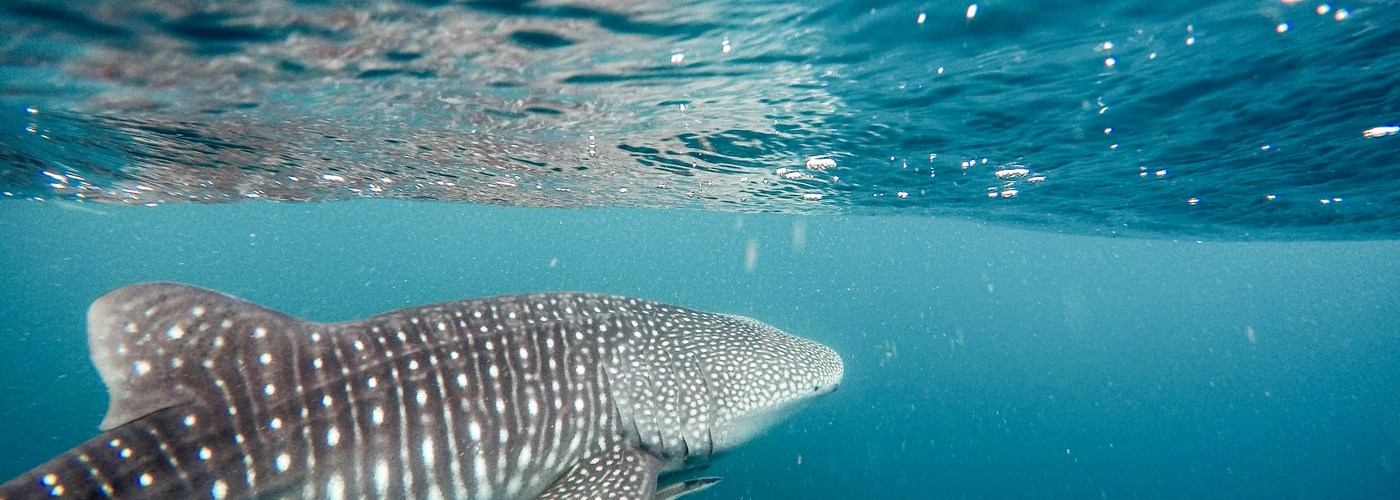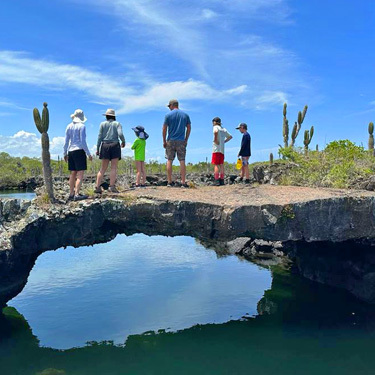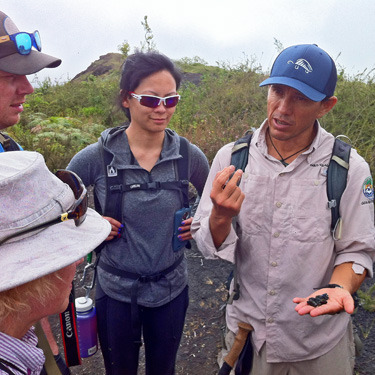July 15, 2025
Galápagos Records Historic Sighting of 12 New Whale Sharks
This content is available in English only

In a groundbreaking 15-day expedition to Darwin’s Arch, the Galápagos Whale Shark Project team, led by scientists and park rangers based in the archipelago, identified 12 new whale sharks (Rhincodon typus) within the Galápagos Marine Reserve (GMR).
The team documented a rare adult male, a discovery of special importance since 99% of sightings in the region are female. Even more remarkable was the resighting of a female last registered 13 years ago, offering compelling evidence of long-term site fidelity among these migratory animals.
Seven of the newly identified individuals were equipped with satellite tags to monitor their movements and collect critical data on their behavior and migration routes, information vital to understanding and protecting this endangered species.
According to Jenifer Suárez, Director of Ecosystems at Galápagos National Park, “These findings significantly enhance our knowledge of whale shark ecology. The presence of a male and the re-identification of a long-known female underscore the ecological value of Darwin’s Arch as a key site for this species.”
The consistent sightings of whale sharks, now totaling 758 individuals recorded since 2001, signal a healthy marine ecosystem and reaffirm the Galápagos Marine Reserve as a critical habitat for marine megafauna. Their continued presence supports global conservation efforts, as whale sharks are classified as endangered and play an essential role in maintaining ocean health.
This expedition marks another step forward in ensuring the long-term protection of the species and the resilience of one of the world’s most unique marine environments.
Want to know more about this incredible species? Explore their biology, threats, and global conservation status here.
Why This Matters for the Galápagos Marine Reserve
These findings are more than just numbers—they reflect the resilience and ecological importance of the Galápagos Marine Reserve as a sanctuary for endangered species. Whale sharks are considered indicators of ocean health; their presence suggests balanced ecosystems, rich biodiversity, and the success of effective protection policies.
Each new discovery helps guide better conservation strategies and strengthens the scientific foundation for preserving this UNESCO World Heritage Site for future generations.
Help Whale Shark Conservation ?
There are many ways to support the conservation of this incredible species. Even if you're far from the Galápagos, you can still play a role in protecting whale sharks and supporting marine conservation.
- Adopt a whale shark:
Through WWF Species Adoptions
- Support marine conservation through responsible travel. By visiting places like the Galápagos National Park through sustainable tourism, you help strengthen vital marine sanctuaries, ensuring that extraordinary species like the whale shark can continue to thrive in safe, protected waters.
- Want to know how whale shark are being protected in the Galápagos? Discover ongoing conservation efforts and how you can support them trough Galapagos Conservation
Strengthening Marine Conservation in the Galápagos
Every sighting, every satellite tag, and every shared piece of data contributes to a growing body of knowledge that helps shape stronger marine protection policies. The Galápagos Marine Reserve is not only a sanctuary for whale sharks, it is a global model for conservation in action.
By learning, supporting, and sharing, we all become part of a global movement to protect our ocean’s gentle giants and the ecosystems they sustain. Don’t forget to share this with a friend!



